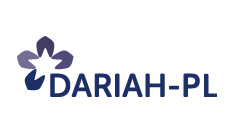
Digital Research Infrastructure for the Humanities (eHum PSNC)
Location: Poznań, Poland
Contact: Arek Margraf (margraf@man.poznan.pl)
The scope of the e-infrastructure is in three main areas:
-
- Data Collection and Storage
We offer support in building and maintaining repositories, libraries and other digital platforms that serve research teams to efficiently collect and store research data for the purposes of humanities projects in the long term. - Data Processing, Analysis and Visualisation
We develop dedicated tools for data processing and analysis, necessary for working with larger amounts of source material. We also help you select existing digital tools to meet your research goals, and if necessary, we can adapt them to your specific needs. - Sharing and Promotion of Results
We build and maintain web services to promote information on the progress of research projects. We create portals to share project results materials, combining functions of effective data presentation with research tools and open APIs.
- Data Collection and Storage
Services currently offered by the infrastructure:
-
- HTR and OCR services come with unique and supplementary features, such as file conversion, the ability to recognize aged prints, and the capability to train models for unconventional handwritten characters like musical notation. The HTR system is built upon KRAKEN/eScriptorium and operates on a high-speed CPU/GPU with ample storage for data.
-
- Virtual Transcription Laboratory Service for collective transcription of historical printed documents, with built-in OCR, correction and training functions for old prints and import of content from digital libraries.
-
- Aggregation Services (Digital Libraries Federation & Europeana). Find out more about collections of Polish and European cultural and scientific institutions by exploring FBC (Digital Libraries Federation) and Europeana. These portals give access to over 50 million digitised items and are being visited by millions of international visitors.
-
- Locloud Collections Cloud service of creating digital libraries, archives and museums dedicated to small cultural institutions and research teams.
-
- Plain Letter Platform is an online platform intended as a database of official letters and a tool for simplifying their linguistic layer. The service implements the EU directive on the accessibility of digital tools in terms of improving the communicative accessibility of writings for recipients. For this purpose, it uses models from the area of natural language processing (such as NER) as well as large transformer language models (for example, BART) trained on datasets collected at PSNC (mainly in Polish).
-
- Digitization Laboratory to practice object digitization using PSNC’s fast-scanning and large object-scanning scanners, cameras in the photo studio and 3D-scanners. Our team will provide expertise on choosing digitization methods, colour management and measurement (delta E).
-
- PSNC can provide support and expertise based on its Digital Libraries and Knowledge Platforms department that works on ICT solutions for cultural heritage and digital humanities. The team is composed of 35+ members with expertise in ICT research & development, including cloud computing, large-scale processing of data, data aggregation and management, data normalisation and conversion, text processing, digitization workflows as well as dedicated solutions for digital humanities.
Offering
Access to eHum infrastructure and IT experts consultancy.
PSNC team can offer experts support in regards to performing specific digital humanities tasks related (but not excluded) to the services mentioned above, such as support in architectural, technological or deployment challenges. We can help you evaluate the technology stack for your desired workflow or identify what are the missing parts in it. You might also be interested in using any of the services mentioned above and connecting it to your workflow.

